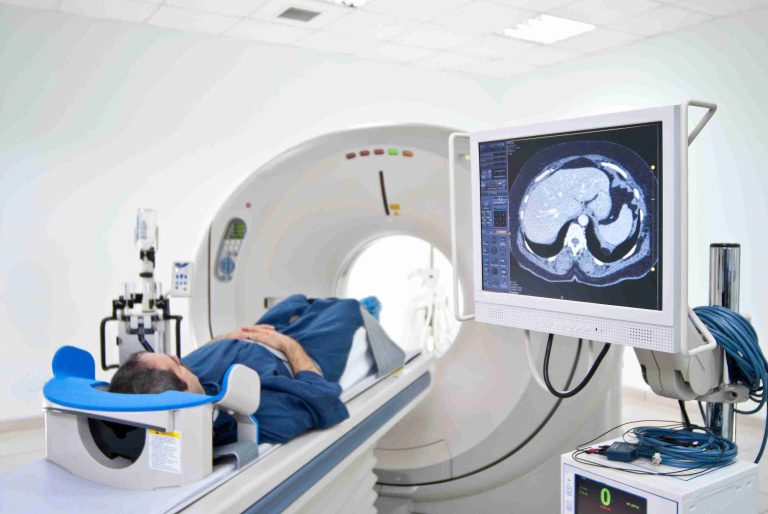Gastric pain is a common issue that affects people of all ages, often resulting from poor dietary habits, stress, or underlying medical conditions. Maintaining digestive health plays a crucial role in preventing gastric pain and ensuring overall well-being. The digestive system is responsible for breaking down food, absorbing nutrients, and eliminating waste, making it essential to keep it functioning properly. By adopting healthy eating habits, managing stress, and staying active, individuals can prevent gastric pain and improve their quality of life.
Understanding Gastric Pain
Gastric pain, also known as stomach pain or abdominal discomfort, can vary in severity and duration. It often occurs due to irritation of the stomach lining, acid reflux, bloating, or indigestion. In some cases, it may be linked to more serious conditions such as gastritis, ulcers, or gastrointestinal infections.
Common symptoms associated with gastric pain include burning sensations, nausea, bloating, and cramps. Identifying the root cause of gastric pain is essential for effective management and prevention.
The Role of Diet in Digestive Health
Diet plays a significant role in maintaining digestive health and preventing gastric pain. Consuming a balanced diet rich in fiber, healthy fats, and lean proteins can support proper digestion and reduce the risk of digestive disorders.
Foods That Promote Digestive Health
- Fiber-Rich Foods: Whole grains, fruits, and vegetables promote bowel regularity and prevent constipation.
- Probiotics: Yogurt, kefir, and fermented foods help balance gut bacteria and aid digestion.
- Lean Proteins: Fish, poultry, and plant-based proteins are easier to digest than fatty meats.
- Healthy Fats: Avocados, nuts, and olive oil support digestion and nutrient absorption.
- Hydrating Foods: Cucumbers, watermelon, and leafy greens provide hydration and prevent bloating.
Foods to Avoid
- Spicy Foods: Can trigger acid reflux and stomach irritation.
- Fried and Fatty Foods: Slow down digestion and increase the risk of gastric discomfort.
- Processed Foods: High in preservatives and additives that may disrupt gut health.
- Caffeinated and Carbonated Beverages: Can cause bloating and acid reflux.
- Excessive Sugar: May promote unhealthy gut bacteria and cause digestive issues.
Hydration and Digestive Health
Water is essential for proper digestion as it helps break down food and absorb nutrients efficiently. Dehydration can lead to constipation and increased gastric pain. Drinking at least 8-10 glasses of water daily supports digestive function and prevents discomfort.
Herbal teas such as chamomile, ginger, and peppermint can also aid digestion and soothe an irritated stomach. Additionally, avoiding excessive alcohol and caffeinated beverages can help maintain stomach health and prevent acid reflux.
The Impact of Stress on Digestion
Stress has a direct impact on digestive health, as it can lead to conditions such as irritable bowel syndrome (IBS), acid reflux, and bloating. The gut and brain are closely connected, and chronic stress can disrupt the digestive process. Managing stress through relaxation techniques, mindfulness, and physical activity can significantly improve digestion and prevent gastric pain.
Stress Management Techniques
- Regular Exercise: Engaging in physical activity helps relieve stress and supports digestion.
- Deep Breathing Exercises: Techniques like diaphragmatic breathing can relax the digestive tract.
- Yoga and Meditation: Help reduce stress and improve gut health.
- Adequate Sleep: A proper sleep schedule enhances overall health and digestion.
- Time Management: Reducing work-related stress can prevent digestive disturbances.
Physical Activity and Digestion
Regular physical activity is essential for a healthy digestive system. Exercise stimulates the digestive tract, promotes regular bowel movements, and reduces the risk of bloating and gas. Engaging in activities such as walking, jogging, cycling, or yoga can improve digestion and prevent gastric pain. Even light movements after meals, such as a short walk, can help speed up digestion and reduce discomfort.
Establishing Healthy Eating Habits
How you eat is just as important as what you eat when it comes to digestive health. Adopting mindful eating practices can prevent overeating, indigestion, and gastric discomfort.
Tips for Healthy Eating Habits
- Eat Slowly: Chewing food thoroughly aids digestion and prevents bloating.
- Avoid Overeating: Eating large portions can put stress on the digestive system.
- Maintain Regular Meal Times: Irregular eating patterns can disrupt digestion.
- Avoid Eating Late at Night: Late-night meals can increase acid reflux risk.
- Listen to Your Body: Eating only when hungry prevents unnecessary digestive strain.
Recognizing When to Seek Medical Advice
While most cases of gastric pain are mild and resolve on their own, persistent or severe pain may indicate an underlying medical condition. If symptoms such as prolonged bloating, severe cramps, blood in stools, or sudden weight loss occur, consulting a healthcare professional is essential. Conditions such as gastritis, ulcers, gallbladder disease, or inflammatory bowel disease may require medical treatment.
Common Conditions Requiring Medical Attention
- Gastritis: Inflammation of the stomach lining that may require medication.
- Peptic Ulcers: Sores in the stomach lining that need medical intervention.
- Acid Reflux Disease: Chronic acid reflux that can lead to esophageal damage.
- Lactose Intolerance: Inability to digest dairy leading to digestive discomfort.
- Gallbladder Disease: Can cause severe abdominal pain and requires medical evaluation.
The Importance of Regular Health Check-ups
Preventive healthcare plays a key role in maintaining digestive health. Regular check-ups help detect early signs of digestive disorders and allow timely intervention. Screening for conditions such as Helicobacter pylori infections, food intolerances, and digestive disorders can prevent complications and improve overall health. Consulting a gastroenterologist for persistent digestive issues ensures proper diagnosis and treatment.
Conclusion
Maintaining digestive health is essential in preventing gastric pain and promoting overall well-being. A balanced diet, adequate hydration, regular exercise, and stress management are key factors in keeping the digestive system functioning optimally. Avoiding processed foods, eating mindfully, and recognizing warning signs of digestive issues can further enhance gut health.
By adopting these lifestyle changes, individuals can reduce their risk of experiencing gastric pain and enjoy a healthier digestive system. If gastric pain persists or worsens, seeking medical advice is crucial for early diagnosis and effective treatment.







